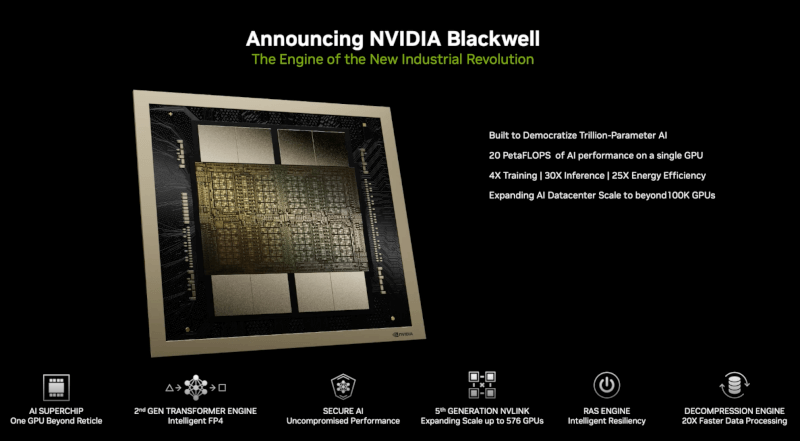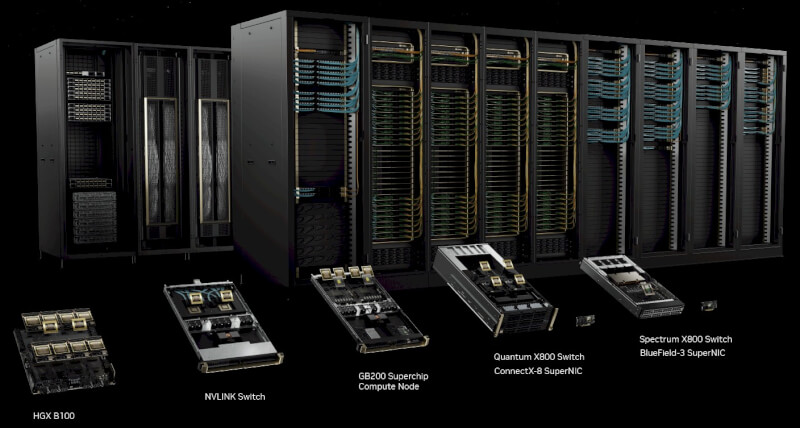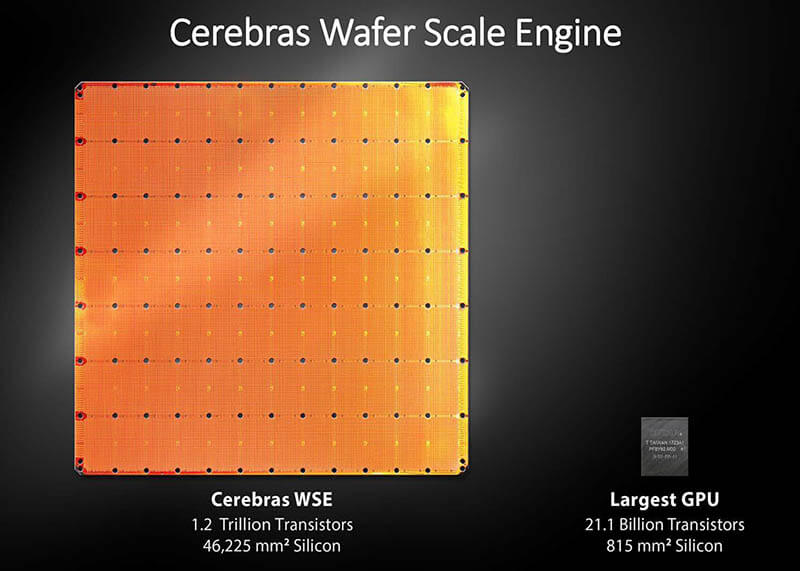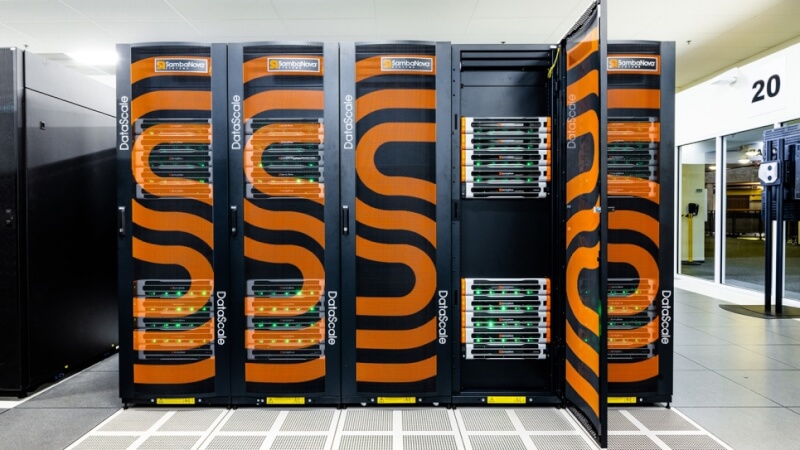Nvidia is still strong on AI but can be challenged

While Nvidia maintains a significant competitive advantage with its full product ecosystem and leadership in AI, new dynamics in that market and innovative AI-focused solutions from competitors may affect Nvidia's valuation and market.
Nvidia's current "moat" is very large, but it appears that the company has a significant weakness that alert researchers and well-funded start-ups are beginning to exploit. Nvidia originally developed its GPU and CPU for non-AI-specific tasks. But the power of their calculations proved applicable to deep learning and other AI tasks, putting Nvidia in a very strong position as demand for AI began to rise.

However, it is important to note that Nvidia developed its infrastructure based on computations not specifically designed for AI. However, that doesn't mean Nvidia isn't aware of this; they are absolutely sure, and they will do everything they can to develop systems and infrastructure that have AI in focus. For example, Nvidia continues to develop its Tensor Cores, which are specialized units within Nvidia's GPUs that handle AI workloads. Google also offers Tensor Processing Units (TPUs), which are custom-designed chips that work with Google's own machine learning framework.
However, there is still an opportunity here for newer companies to capture a slice of the market if they challenge Nvidia, Google and other tech giants in developing chips specifically designed for AI tasks. The main competitive advantage these AI-specific chips will have is efficiency in AI tasks, which is a key selling point as consumers expect faster results from AI systems.

Competitors such as Groq, Cerebras and SambaNova are already challenging Nvidia in this area. Groq offers a Tensor Streaming Processor architecture that reduces latency and increases the efficiency of AI computations. Cerebras has a massive AI chip called the Wafer Scale Engine that allows fast and efficient AI computations through minimal data transfer. SambaNova offers an integrated hardware and software solution through its DataScale system powered by AI-specific chips.
Although Nvidia remains the leading player in AI infrastructure, these innovative competitors could challenge the company's dominance in AI chip design. However, it is important to note that Nvidia remains an extraordinary company with a strong strategic focus that will help them meet these challenges.

Nvidia's CUDA also deserves a special mention here, as it is an architecture that allows a variety of customers to use Nvidia's GPUs for general purpose processing. This allows Nvidia to harness the power of their hardware for various purposes. While there is competition in the AI market, Nvidia remains the leader in AI and its broader applications. Their full-stack ecosystem and continued innovations in AI integration position them strongly for the future.
Latest processor - cpu
-
31 Octprocessor - cpu
-
16 Sepprocessor - cpu
AMD Ryzen AI 7 PRO 360 spotted
-
04 Sepprocessor - cpu
Intel scores big AI chip customer
-
04 Sepprocessor - cpu
Exclusively-Intel manufacturing store drawers
-
29 Augprocessor - cpu
Big performance boost for Ryzen CPUs
-
28 Augprocessor - cpu
Intel shares could fall in battle with TSMC and NV
-
28 Augprocessor - cpu
AMD is claimed to have been hacked
-
27 Augprocessor - cpu
Intel presents Lunar Lake, Xeon 6, Guadi 3 chips
Most read processor - cpu
Latest processor - cpu
-
31 Octprocessor - cpu
AMD will launch the Ryzen 7 9800X3D on November 7
-
16 Sepprocessor - cpu
AMD Ryzen AI 7 PRO 360 spotted
-
04 Sepprocessor - cpu
Intel scores big AI chip customer
-
04 Sepprocessor - cpu
Exclusively-Intel manufacturing store drawers
-
29 Augprocessor - cpu
Big performance boost for Ryzen CPUs
-
28 Augprocessor - cpu
Intel shares could fall in battle with TSMC and NV
-
28 Augprocessor - cpu
AMD is claimed to have been hacked
-
27 Augprocessor - cpu
Intel presents Lunar Lake, Xeon 6, Guadi 3 chips






